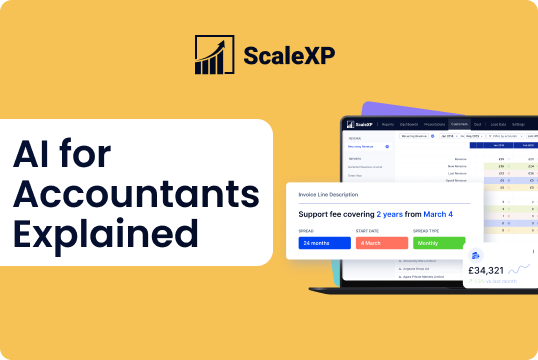The hidden cost of manual finance work
Why manual month-end is still the norm for many finance teams
Despite the rise of cloud accounting, most finance teams still manage close processes manually. Whether you’re using Xero or QuickBooks, tasks like journal entries, spend categorisation, and reconciliations often happen in spreadsheets, across multiple tabs, and with too many emails.
What this really costs: Time, accuracy, and visibility
Manual finance processes aren’t just inefficient — they hold teams back. Most CFOs lose 3–5 days each month to repetitive tasks. Spreadsheet errors creep in. Real-time visibility becomes a dream, not a standard.
These aren’t just operational inefficiencies — they’re strategic risks that limit your ability to lead.
From reactive to proactive: How AI Is changing the role of finance
What AI in accounting actually means today
Let’s move beyond the hype. AI in finance isn’t about replacing people. It’s about automating what can be automated — and freeing teams to focus on decisions, not data entry.
The best tools combine machine learning, rule-based automation, and real-time syncs to remove manual work across journals, reconciliations, and report building. This is the foundation of AI for accountants.
Real benefits CFOs are already seeing
- Save 3–5 days per month on automated month-end close activities
- Reduce spreadsheet errors by up to 80%
- Deliver real-time dashboards for cash flow, revenue, margin
But seeing these gains doesn’t happen automatically — it depends on the tools you choose and how you use them.

What to look for in an AI-enabled accounting platform
Deep integration with Xero or QuickBooks
Look for platforms that offer true two-way syncing, automatic journal creation, and intelligent categorisation. Your AI system should work with your accounting platform, not around it.
Automation beyond categorisation
The real savings happen when your platform automates:
- Deferred revenue schedules
- Accruals and prepayments
- FX revaluations
Live dashboards and audit-ready reporting
Your team should be able to generate accurate, real-time dashboards and export audit logs in seconds.
Real examples from finance teams
“Thanks to ScaleXP, our close is now twice as fast — and we’re finally free of Excel chaos.” — Ivan van Eck, CFO
Choosing the right platform is a force multiplier for your team — it doesn’t just automate tasks, it elevates your strategic role.
What Modern Finance Teams Look Like
Daily visibility into revenue, spend, and runway
With AI-enabled workflows and automated month-end close features, CFOs and their teams can check live dashboards daily — no more waiting for month-end.
Strategic collaboration with CEOs and boards
With clean data and trusted reporting, finance teams can support decisions proactively and deliver board packs in minutes.
Tighter audit readiness and stakeholder confidence
Automated audit trails, linked journals, and instant export features build trust with external stakeholders.
Finance is no longer about chasing the numbers — it’s about leading with them.
FAQs: What CFOs are asking about AI in finance
Most CFOs report measurable results within 30–60 days, especially in close time, revenue recognition, and reporting quality.
Yes. ScaleXP connects in minutes and begins automating reconciliations and journal entries immediately.
The most common areas are:
- Month-end journal entries
- Deferred revenue schedules
- Spend categorisation
- Real-time reporting
Look for tools with complete audit trails, human approval workflows, and journal-level transparency.
No major transformation is required. Leading tools like ScaleXP are intuitive, easy to adopt, and deliver value within the first month.
Make the shift now, not next quarter
How to get started
- Launch a free trial or proof of concept
- Connect Xero or QuickBooks in minutes
- Automate 80% of close tasks in 30 days with AI for accountants
Book a 15-minute walkthrough of ScaleXP today and see how AI for accountants powers an automated month-end close.


